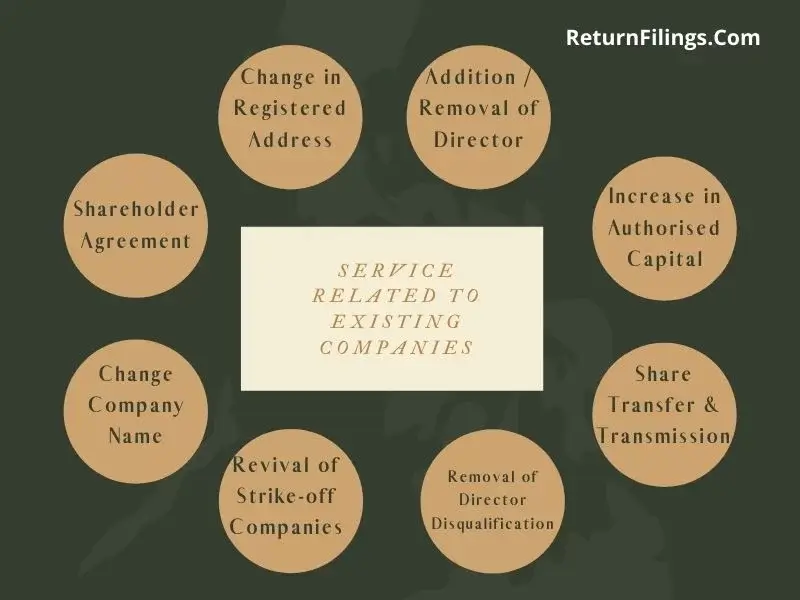Removing Directors Disqualification in India: Causes, Procedure & Prevention
1. Introduction
The role of a director in a company is crucial, requiring them to perform their duties professionally and diligently. However, if a director contravenes the provisions of the Companies Act, 2013, the Registrar of Companies (RoC) has the authority to declare such directors as disqualified. Disqualification of a director has severe implications, including:
• Prohibition from serving as a director in any company for five years.
• Automatic cessation of directorship in all companies where they are serving.
• Potential impact on the company’s operations, especially in cases where the minimum required number of directors is not met.
This guide provides an in-depth understanding of the reasons for disqualification and the step-by-step process to remove director disqualification.
2. Conditions Leading to Directors Disqualification
As per Section 164 of the Companies Act, 2013, a director may be disqualified under the following conditions:
2.1 Non-Filing of Financial Statements
• Failure to file annual financial statements or annual returns with the RoC for three consecutive financial years.
2.2 Default in Repayment of Deposits
• Failure to repay deposits, interest on deposits, or redeem debentures for more than one year.
2.3 Insolvency
• A director who has been declared insolvent.
2.4 Unsound Mind
• A director who is declared to be of unsound mind by a competent court.
2.5 Conviction for Criminal Offenses
• If sentenced to imprisonment for a period of not less than six months.
• If sentenced to imprisonment for seven years or more, such disqualification is permanent.
2.6 Default in Share Payments
• Failure to pay calls on shares held for more than six months.
2.7 Company Strike-Off
• If a company is struck off under Section 248, its directors are disqualified from being appointed in other companies.
3. Consequences of Directors Disqualification
• Loss of Directorship: The director is removed from all companies where they hold a position.
• Operational Challenges for the Company: If the number of directors falls below the statutory requirement (two for private companies, three for public companies), the company becomes non-compliant.
• Restriction on Future Appointments: The disqualified director cannot be reappointed in any company for five years.
4. Procedure for Removal of Director Disqualification
To remove disqualification, the following legal remedies are available:
4.1 Filing a Writ Petition in High Court
• The affected director must file a Writ Petition under Article 226 of the Indian Constitution before the jurisdictional High Court.
• The petition should include:
o Memo of Parties to Petition
o Notice of Motion
o Synopsis of List of Dates and Events
o Stay Application under Section 151 of CPC
• The High Court may grant interim relief by staying the disqualification.
4.2 Application to NCLT for Revival of Company
• If the disqualification is due to the company’s strike-off, an application under Section 252 of the Companies Act, 2013 must be filed before the National Company Law Tribunal (NCLT).
• Upon approval, the company’s name is restored, and director disqualification is revoked.
4.3 Filing an Application with the Registrar of Companies (RoC)
• A request for removal of disqualification should be made to the RoC via the Change Requirement Form (CRF).
• Supporting documents, such as the High Court or NCLT order, must be attached.
4.4 Activation of Director Identification Number (DIN)
• Once the disqualification is removed, the director must apply for reactivation of Director Identification Number (DIN).
5. Case Studies
Case Study: ABC Pvt Ltd
A director of ABC Pvt Ltd was disqualified due to non-filing of annual returns for three consecutive years. Upon filing a Writ Petition in the Delhi High Court, the court granted relief, stating that the penalty was disproportionate and allowed the director to continue serving.
Case Study: XYZ Ltd
XYZ Ltd was struck off due to non-compliance, leading to disqualification of all its directors. The directors approached NCLT, which restored the company and reinstated their directorship.
6. Preventive Measures to Avoid Director Disqualification
To prevent disqualification, companies should ensure:
• Timely filing of annual returns and financial statements.
• Regular compliance checks and audits.
• Proper documentation and payment of statutory dues.
• Ensuring compliance with call money payments and deposits.
7. Conclusion
Director disqualification can severely impact both the individual and the company. However, legal remedies exist to challenge and remove such disqualifications. By staying compliant with statutory obligations, directors can prevent disqualification and ensure smooth company operations.
For professional assistance, reach out to us on email: info@returnfilings.com or on whatsapp: https://wa.me/919910123091 to stay compliant with statutory obligations.
frequently asked questions (faq's) related to Removal of Director Disqualification
Q What is director disqualification?+
A Director disqualification refers to circumstances under which an individual is legally barred from being appointed or continuing as a director of a company. The Companies Act, 2013 specifies various grounds for disqualification.
Q Why are directors disqualified?+
A Directors are disqualified to protect the interests of shareholders and creditors, maintain the integrity of corporate governance, and prevent individuals with a history of misconduct from managing companies.
Q What are the grounds for director disqualification under the Companies Act, 2013?+
A The Companies Act, 2013 specifies several grounds for disqualification, including:
• Being of unsound mind
• Being an undischarged insolvent
• Applying to be adjudicated an insolvent
• Being convicted of an offense involving moral turpitude and sentenced to imprisonment for six months or more
• Not having paid calls on shares
• Being convicted of any offense under the Companies Act and sentenced to imprisonment or fine
• Not having filed financial statements or annual returns for three consecutive financial years
• Company’s failure to repay deposits, redeem debentures, or pay dividends for one year or more
Q Can a director disqualification be removed?+
A In some cases, yes, a director disqualification can be removed or the individual can become eligible to be a director again after fulfilling certain conditions.
Q How can a disqualification be removed?+
A The process for removing a disqualification varies depending on the ground. For insolvency, it is removed upon discharge; for conviction, after the expiry of a specified period or on obtaining a pardon; for non-filing of returns, after overdue filings and payment of penalties. Other grounds require compliance with specific legal provisions.
Q What is the process for removing disqualification due to non-filing of financial statements/annual returns?+
A The process involves filing all overdue financial statements and annual returns, paying any applicable penalties, and making an application to the Registrar of Companies (ROC) for removal of disqualification.
Q What is the process for removing disqualification due to conviction?+
A The process involves waiting for the expiry of the specified period after conviction (if applicable), applying for a pardon (if applicable), and making an application to the relevant authority for removal of disqualification.
Q Where should the application for removal of disqualification be made?+
A The application for removal of disqualification is generally made to the Registrar of Companies (ROC) where the company is registered.
Q What documents are required for the application?+
A Required documents generally include proof of the circumstances that led to disqualification, evidence of fulfilling the conditions for removal (e.g., discharge certificate for insolvency, proof of filing overdue returns), and an application explaining the circumstances and requesting removal.
Q Is there a fee for applying for removal of disqualification?+
A Yes, there is a prescribed fee for applying for removal of disqualification.
Q Can a person whose disqualification has been removed immediately become a director?+
A Even after disqualification is removed, the individual must still meet all other eligibility criteria for being a director.
Q What is the role of the Registrar of Companies in the removal of disqualification?+
A The ROC examines the application and supporting documents and makes a decision regarding the removal of the disqualification.
Q Where can I find the latest notifications and circulars related to director disqualification and removal?+
A The Ministry of Corporate Affairs (MCA) website is the official source for all such notifications and circulars.
Q How do I check if a person is disqualified from being a director?+
A You can check the status of director disqualification on the MCA website.
Q What is the meaning of "moral turpitude" in the context of director disqualification?+
A Moral turpitude generally refers to conduct that is considered base, vile, or depraved.
Q Can a person disqualified under one section of the Companies Act be appointed as a director under another section?+
A No, a person disqualified under any section of the Companies Act is generally disqualified from being a director.
Q What is the impact of director disqualification on a company?+
A A company may need to appoint new directors to fill the vacancies created by disqualification.
Q How long does it take to remove a director disqualification?+
A The time frame varies depending on the ground for disqualification and the processing time of the relevant authorities.
Q Can a company appoint a disqualified person as an employee?+
A Whether a company can employ a disqualified person depends on the nature of the disqualification and the role they would be performing.
Q What are the consequences of acting as a director while disqualified?+
A Acting as a director while disqualified can lead to penalties and legal action.
Q How can I appeal a director disqualification?+
A The process for appealing a disqualification will depend on the specific circumstances and applicable legal provisions.
Q What is the role of the National Company Law Tribunal (NCLT) in matters related to director disqualification?+
A The NCLT may have jurisdiction over certain matters related to director disqualification and removal.
- For further reading, explore the following topics:
- 🚛 E-Way Bill Under GST in India: Applicability Thresholds, Process & Legal Compliance
- 📄 How to Claim GST Exemption in India: Documentation Checklist & Compliance Tips
- 🏦 RBI Compliance for Foreign Entities in India: Steps for BO, LO & PO Registration
- 📈 Compliance Checklist for Raising Authorized Share Capital of Indian Private Limited Company

